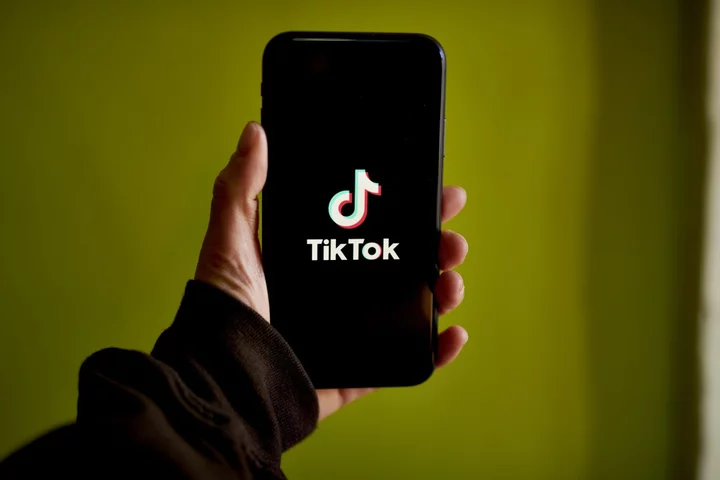Humane AI Pin: Much-hyped tech product launches and makes major mistake in its first outing
Humane has launched its AI Pin, one of the world’s most hyped tech products, and it has immediately made a public mistake. The AI Pin has been the subject of speculation promoted by Humane, a company that has remained somewhat mysterious and includes designers and executives who have worked at Apple and Microsoft. The system is intended to be attached to clothing and then makes use of a range of microphones, speakers and a display that can shine onto its owners hand to give information. That information is provided by artificial intelligence systems built on technology from ChatGPT creator OpenAI and Microsoft. The pin costs $699 and will be available later this year. It has been promoted by its president Imran Chaudhri as a response to both the prevalence of phones and the future of mixed-reality headsets, instead aiming to allow people to engage with the world around them. One of the features intended to do that is access to artificial intelligence systems that can be used to get answers to questions. Users can just press the AI Pin and speak into the air, which will then allow the computer to access the internet and show an answer. During its reveal event, executives showed the pin being used to answer one such question. “I can also use it to ask questions, like: when is the next eclipse, and where is the best place to see it?”, representatives said, explaining that it would be answered by “an AI browsing the web, or grabbing knowledge from all over the internet”. The AI Pin is then showed answering by saying that the best place to view the next total solar eclipse, in April 2024, would be Exmouth in Australia or East Timor. But next year’s solar eclipse will in fact be visible in North America, and in fact has been given the name “the Great North American Eclipse”. It will not be at all visible in Australia, and can only be seen in Mexico, the US and Canada. The system may have made the mistake because a total solar eclipse earlier this year was in fact best viewed from Exmouth and East Timor. That eclipse, in April, brought widespread coverage to the small Australian town – and that coverage was presumably used to train the artificial intelligence system that answered the question. Humane did not say which assistant was being used for that answer. The AI Pin is built specifically to call on a number of different assistants depending on what question is asked. The error recalls a similar error made by Google’s Bard chatbot when it was introduced at the beginning of the year. An ad showed Bard being asked about interesting discoveries by Nasa’s James Webb Space Telescope, and replying that it had taken “the very first pictures of a planet outside of our own solar system” – which is not true. At the time, many noted that the error highlighted a central error with large language models. The systems tend to “hallucinate” – or confidently state falsehoods – and have no real way of being able to check whether the information they are given is true. Read More You can finally use one feature of the Apple Vision Pro headset – sort of ChatGPT creator mocks Elon Musk in brutal tweet Call of Duty launch sparks record traffic on broadband networks

Humane has launched its AI Pin, one of the world’s most hyped tech products, and it has immediately made a public mistake.
The AI Pin has been the subject of speculation promoted by Humane, a company that has remained somewhat mysterious and includes designers and executives who have worked at Apple and Microsoft.
The system is intended to be attached to clothing and then makes use of a range of microphones, speakers and a display that can shine onto its owners hand to give information. That information is provided by artificial intelligence systems built on technology from ChatGPT creator OpenAI and Microsoft.
The pin costs $699 and will be available later this year. It has been promoted by its president Imran Chaudhri as a response to both the prevalence of phones and the future of mixed-reality headsets, instead aiming to allow people to engage with the world around them.
One of the features intended to do that is access to artificial intelligence systems that can be used to get answers to questions. Users can just press the AI Pin and speak into the air, which will then allow the computer to access the internet and show an answer.
During its reveal event, executives showed the pin being used to answer one such question. “I can also use it to ask questions, like: when is the next eclipse, and where is the best place to see it?”, representatives said, explaining that it would be answered by “an AI browsing the web, or grabbing knowledge from all over the internet”.
The AI Pin is then showed answering by saying that the best place to view the next total solar eclipse, in April 2024, would be Exmouth in Australia or East Timor.
But next year’s solar eclipse will in fact be visible in North America, and in fact has been given the name “the Great North American Eclipse”. It will not be at all visible in Australia, and can only be seen in Mexico, the US and Canada.
The system may have made the mistake because a total solar eclipse earlier this year was in fact best viewed from Exmouth and East Timor. That eclipse, in April, brought widespread coverage to the small Australian town – and that coverage was presumably used to train the artificial intelligence system that answered the question.
Humane did not say which assistant was being used for that answer. The AI Pin is built specifically to call on a number of different assistants depending on what question is asked.
The error recalls a similar error made by Google’s Bard chatbot when it was introduced at the beginning of the year. An ad showed Bard being asked about interesting discoveries by Nasa’s James Webb Space Telescope, and replying that it had taken “the very first pictures of a planet outside of our own solar system” – which is not true.
At the time, many noted that the error highlighted a central error with large language models. The systems tend to “hallucinate” – or confidently state falsehoods – and have no real way of being able to check whether the information they are given is true.
Read More
You can finally use one feature of the Apple Vision Pro headset – sort of
ChatGPT creator mocks Elon Musk in brutal tweet
Call of Duty launch sparks record traffic on broadband networks









